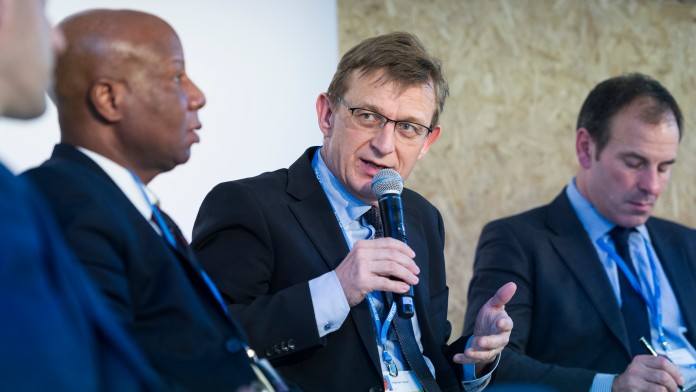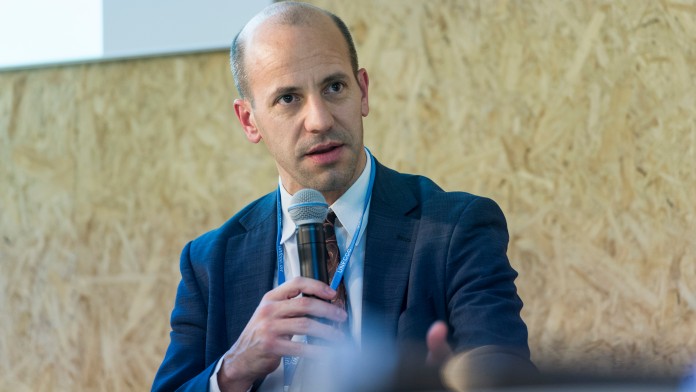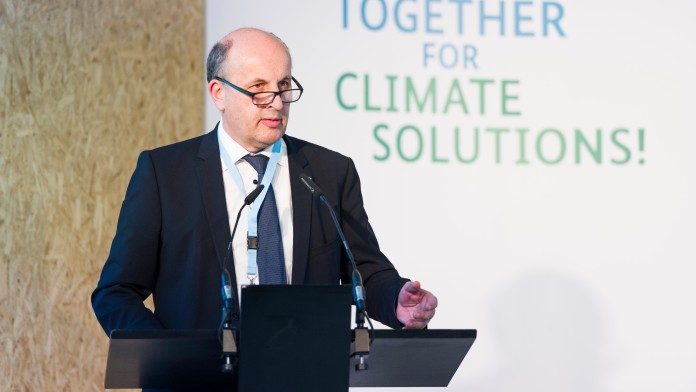News from 2017-11-17 / KfW Development Bank
Advancing the reform agenda through financing!
KfW presents an innovative financial instrument for implementation of national climate plans at the COP 23

The implementation of the Nationally Determined Contributions (NDCs) as foreseen in the Paris Agreement needs long-term visions that will require sufficient funding. Against this backdrop KfW provides a flexible financial instrument known as Policy Based Loans (PBL), which aims at supporting individual reforms in partner countries through loans. This includes the adaptation of political and regulatory frameworks as well as specific key investments.
"As a development bank that accounts for 80% of Germany’s climate financing in developing countries and emerging markets, we consider PBLs as a strategic topic," noted Stephan Opitz, Member of the Management Committee of KfW Development Bank. In his opening remarks Phillip Knill, head of the Climate Policy division at the Federal Ministry of Economic Cooperation and Development (BMZ), said: "Where they are properly applied, PBLs produce exactly the outcomes we desire." According to him, the NDCs, which sum up the commitments and contributions by the individual countries to climate protection and adaptation, thus open a "new dimension" in development cooperation. Solution-based financing approaches such as PBLs can provide funding opportunities for partner countries for reforms already adopted. This makes them a "significant milestone" in achieving the goals of the Paris Agreement. However, this calls for a fine-tuning of the NDCs as pointed out by Norbert Gorißen, head of the International Climate Finance division at the Federal Ministry for the Environment.

Multiple advantages
PBLs capture clear objectives as to the achievement of climate goals through the NDCs as well as the specific indicators. This takes place in several phases with the possibility of increasing the degree of ambition between the individual levels. The special aspect is that the loans are only paid out upon achievement of the goals for each phase.
A precise assessment is necessary
In the ensuing panel discussion, the practical aspects of PBLs took center stage. Despite their clear advantages in the implementation of NDCs, Juan Arredondo from the Mexican Ministry of the Environment cautioned against a "Myth of individual instruments". Rather, there should be tailor-made solutions for specific problems in a sector. However, in combination with grants in the initial phases he considered PBLs as very promising.

Chris Anaglo from the Ghanaian Ministry for Energy hoped that PBLs would lead to more transparency as their conditionality implies public tenders. According to James Close from the World Bank, the assessment of environmental and social standards should be particularly strict in "open" projects of this kind. Furthermore, there was also the question as to how PBL projects could be further utilized in adapting to climate change in the future.
Pursue and expand commitment
In concluding the discussions, KfW team leader Peter Hilliges noted that "PBLs and NDCs are like a journey and a learning process for all partners". According to him, PBLs have significant advantages since the partner institutions contribute with their specific sector know-how, which allows for cooperation at an equal level. Before that, Norbert Gorißen from the Federal Ministry for the Environment had concluded: "Climate finance is often more complex that ordinary development cooperation. I would thus be glad if KfW carried on with their PBL approach."

Share page
To share the content of this page with your network, click on one of the icons below.
Note on data protection: When you share content, your personal data is transferred to the selected network.
Data protection
Alternatively, you can also copy the short link: https://www.kfw-entwicklungsbank.de/s/enzBWrMC.BsTA
Copy link Link copied